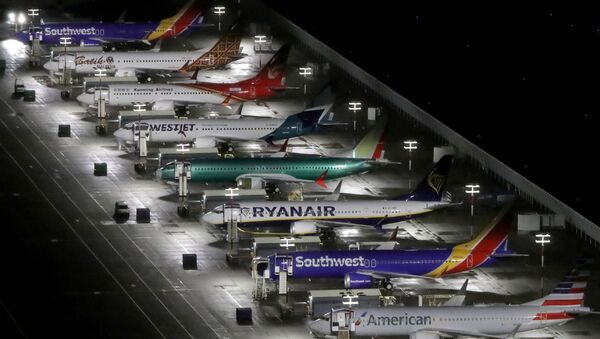“A change in leadership was necessary to restore confidence in the company moving forward as it works to repair relationships with regulators, customers, and all other stakeholders,” Boeing’s board said in a statement Tuesday.
According to Keen, the two deadly Boeing 737 Max plane crashes in Indonesia and Ethiopia that together killed 346 people could have been avoided if Boeing made decisions based on engineering rather than management.
“I think it’s the case of the managerial class taking over for the engineers, which almost always leads to catastrophe because marketers are all about message and engineers are all about substance,” Keen told By Any Means Necessary hosts Sean Blackmon and Jacquie Luqman, noting that “if you don’t get the substance right with an engineering product you get catastrophes like this. So, it appears as though Muilenburg was part of a decision to rush from the old 737 to the 737 Max … to compete with a product from Airbus.”
The 737 Max’s problems are likely a product of Boeing competing with Airbus’ A321LR aircraft. Multiple reports speculate that Boeing rushed its jet to market in an attempt to beat out its rival. In an effort to use larger, fuel-efficient engines, like Airbus, Boeing engineers realized that the older model 737-800 needed engineering changes, but instead of designing an entirely new plane, Boeing engineers simply installed more fuel-efficient engines, placed further forward and higher on the wings than on the 737-800, and gave the jet a new name: the 737 Max.
In both the Indonesia and Ethiopia crashes, the 737 Max’s new flight control system, the Maneuvering Characteristics Augmentation System (MCAS), has been implicated as the cause. Designed to be a safety feature, MCAS is supposed to evaluate sensor data and push the plane’s nose down to keep it from stalling in the event that the nose of the plane is too high, compensating for a natural tendency caused by the new plane’s engines and their placement.
Instead, the MCAS engaged when it wasn’t needed, and pilots who never knew the computer program existed didn’t know how to react in time to avert a crash.
“When you’re designing something like this, you have an absolute responsibility to get the safety right. If they [Boeing] went through the normal regulatory procedures, they would have been several years behind” Airbus, Keen explained.
“[There] is a whole emphasis on deregulation and cutting red tape, etc, etc, which is sold as a way of making businesses more efficient and let them get to the final consumer faster … right from the outset, the 737 max was not a feasible aircraft,” Keen added.
Documents released earlier this month also revealed that the US Federal Aviation Administration (FAA) knew that Boeing’s 737 Max 8 would be prone to crashes without design changes, highlighting the FAA system’s extreme negligence.
“The power of the corporate sector can take over what’s supposed to regulate them in the first place … the regulators have been weakened over time. It may well be that we have to rely not upon regulators for this sort of thing, because they can be bought out, they can be intimidated, maybe we got to rely upon laws,” Keen said.
The economist noted that Boeing’s errors were “so drastic” that the only option they have is to “completely clean out the management and go back to the previous [state of affairs] where the company was run by engineers.” Keen also noted that he wouldn’t be surprised if Boeing ended up filing for bankruptcy and replaced by other foreign companies as the crashes have tainted “American manufacturing in general.”

